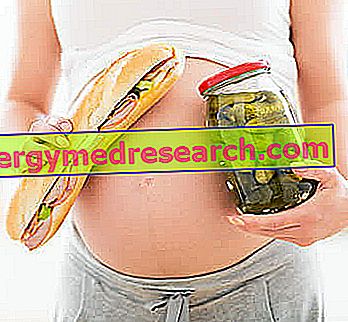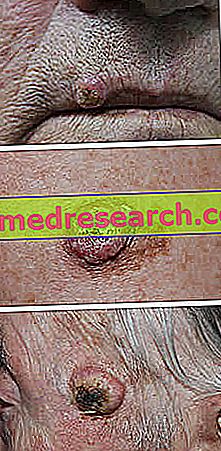Premise
Diet during pregnancy is an extremely important factor for:
- Guarantee a high standard of hygiene and prevent foodborne illnesses.
- Avoid the metabolic complications of the mother and / or fetus.
- Ensure the correct development of the unborn child.
Bacteria, Viruses, Molds and Parasites
Gestation is a period of great vulnerability .

For this reason, during gestation it is advisable to eat only traceable and safe foods, AVOIDING home-made preparations or items of dubious origin.
All raw meat, egg and fish products must be eliminated. They are part of this category: sausages, seasoned meats (salted and smoked), carpaccio (meat and fish), meat or tuna “al sangue”, tartare, raw molluscs (oysters, mussels etc.), sushi, fresh mayonnaise etc.
It is essential to eliminate from the diet also certain soft or fresh cheeses: gorgonzola, brie, feta, camembert, roquefort and not only.
The pathogens that affect these foods are mainly:
- HAV (virus)
- Staphylococcus aureus: bacterium that produces exogenous toxins but not spores
- Escherichia coli: some produce exogenous toxins but not spores
- Salmonella typhi and paratyphi: bacteria that does not produce exogenous toxins and spores
- Clostridium botulinum: bacterium that produces exogenous toxins and spores
- Vibrio cholerae : bacterium that produces exogenous toxins but not spores
- Listeria monocytogenes: bacterium that produces exogenous toxins but not spores
- Anisakis (parasites)
- Opisthorchiasis (parasites)
- Toxoplasma gondii (parasite)
- Taenia solium (parasite)
- Trichinella spiralis (parasite).
The expectant mother must also abolish cold sauces, cooked and consumed cold foods, minced meat and especially when undercooked.
Furthermore, raw vegetables and fruits must be washed thoroughly and disinfected with special solutions (for example "amuchina").
NB . Other foods that should be avoided by the pregnant woman are:
- Mushrooms, mainly of NOT certified origin.
- Vegetables, fruits and oilseeds collected from polluted areas (near the road, near industries, etc.).
What else to avoid?
During gestation complications may arise due to the presence or excess of certain molecules.
To give an indicative example, the nicotine of cigarette smoking and the active ingredients of certain drugs (even light) or some drugs are part of this category.
However, there is still a lot of confusion regarding nerves, or those active ingredients, naturally present in foods and beverages, which act on the central nervous system. These are ethyl alcohol, caffeine (in coffee), theobromine (cocoa and chocolate) and theophylline (in teas, mainly fermented like red and black).
The pregnant woman is allowed to drink at most one alcoholic unit per day, preferably at mealtimes. In practical terms, it would be advisable not to drink more than a glass of wine (125ml) or a bottle of blonde beer (330ml) per day.
All energy drinks, or energy drinks, should be avoided; furthermore, it is advisable not to exceed the three portions of fermented coffee / tea per day (40ml and 150ml).
Excessive additives, especially sweeteners, are considered potentially harmful. In case of intake, it is advisable not to exceed the limit of 7g / day.
Furthermore, during pregnancy, the female organism becomes less tolerant to glucose and more prone to gravidic diabetes. This suggests paying close attention to the choice of foods (preferring those with a low glycemic index) and portions (reducing the average glycemic load). It is advisable to avoid the addition of simple added sugars (sucrose, fructose, syrups, etc.) and various sweets.
In the presence or not of hereditary factors, it is however appropriate to exclude also potentially allergenic foods.
Increased requirements
With gestation, nutritional requirements increase, as the body is affected by the construction of new tissues. The development of the fetus requires a dietary correction far from negligible.
It is necessary to increase energy intake (about 300kcal / day from the second month), saline, vitamin and essential fatty acids (both omega 3 and omega 6).
The vitamins which increase the demand are: cobalamin (vitamin B12), folic acid, pyridoxine (vitamin B6), retinol equivalents (vitamin A) and calciferol (vitamin D).
The most requested mineral salts are: iron, calcium, phosphorus and iodine.
The amount of fat and carbohydrates is increased proportionally to the total calories, while proteins take on a more important role (about 6g / day more than the normal diet).
During pregnancy constipation can occur or worsen, which is why it is sometimes necessary to increase the intake of dietary fiber.



